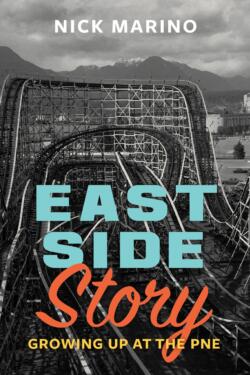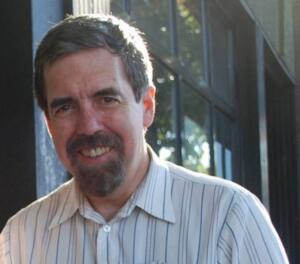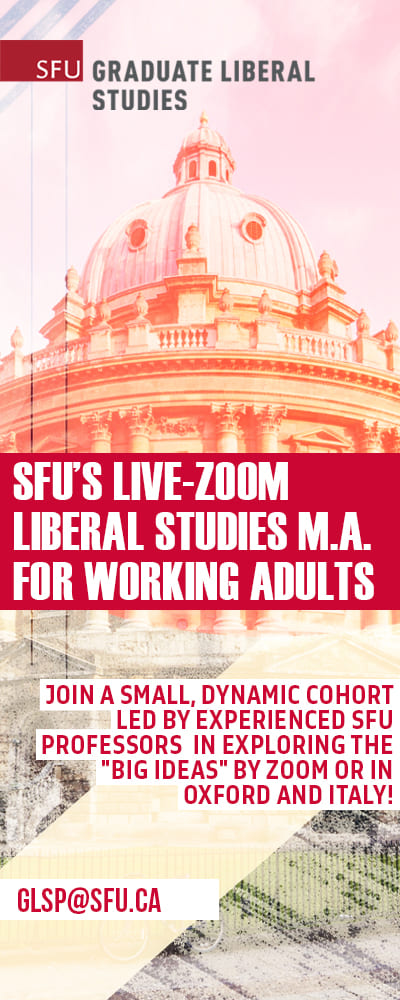1980s East Van nostalgia
East Side Story: Growing Up at the PNE
by Nick Marino
Vancouver: Arsenal Pulp Press, 2023
$21.95 / 9781551529332 (paperback)
Reviewed by Sheldon Goldfarb
*
 When I moved to Vancouver in August 1985, Nick Marino, aged 17, was working his last summer at the PNE. To me the PNE (the Pacific National Exhibition) was some distant fair at the other end of town from where I was ensconced at UBC, but for Nick Marino it was the anchor of East Vancouver, and maybe of all Vancouver, now symbolizing a bygone era of scamps and scams and rough good humour.
When I moved to Vancouver in August 1985, Nick Marino, aged 17, was working his last summer at the PNE. To me the PNE (the Pacific National Exhibition) was some distant fair at the other end of town from where I was ensconced at UBC, but for Nick Marino it was the anchor of East Vancouver, and maybe of all Vancouver, now symbolizing a bygone era of scamps and scams and rough good humour.
Or maybe that was just adolescence? Now Nick Marino has daughters and works as a schoolteacher. He has changed, no doubt, and he says Vancouver has changed. It used to be a blue collar outpost in the West, but Expo 86 changed all that, pushing Vancouver in new directions in its efforts to outgrow its small town roots and become a world-class city. The result, Marino laments, is that it has become an unaffordable city, richer in some ways, but poorer in others.
Marino waxes historical at times, and sociological, even philosophical, throwing in messages about peaking in high school and the lessons of the race between Roger Bannister and John Landy. But the focus of the book is supposed to be on the PNE, which it is at times. Though at other times you wonder: Where have we wandered to now?

Marino is good at conjuring up the atmosphere of teenagers working at the fair, skimming from the till, giving away freebies, getting into fights, being scared of getting into fights – young Nick, as he says, was only “risk-adjacent” and he seems to have worried a lot: one of the ride attendants might get hit by the Pirate Ship or his new girl’s ex-boyfriend might beat him up. He was a cautious lad who only technically lived in East Van, down in the southeast corner of the city, in Killarney. But he celebrates the rowdy types who lived in the northeast and worked or at least lived near the fair.
It’s a romantic and mostly light-hearted picture, filled with nostalgia for the sounds and look of the fair, the food, the games, the rides, the entertainment. And often we wander away from Nick’s own experiences to talk of the old beauty pageants the PNE used to host (it turns out CBC personality Gloria Macarenko was a Miss PNE back in the day). Or he talks about Lui Passaglia and Bob Lenarduzzi because they were East Van boys who made good, and then there’s the story of the internment of Japanese-Canadians long before his time, mentioned here because they were temporarily detained in a part of Hastings Park right next to the fairgrounds and the Happyland Dance Hall.
And he talks of his mother’s premature death and the murder of his great-grandfather, a real estate developer over a century ago, and then there’s the PNE games manager with Mob connections, and passing comments about what it’s like to be Italian (short, among other things, though Italian men don’t think of themselves as short, Nick assures us). And there’s his mooning escapade at high school which cost him the presidency of his student council and led to a brief career as an apology writer for other students. Sometimes you think: What is this book really about? Nick? Nick’s time at the PNE? Other people’s time at the PNE? PNE history? Vancouver history? A little more focus might have been in order.
This could have been more of a personal memoir, for instance, tracing Nick’s history from mooning president to respectable schoolteacher, including his grief for his mother and the drinking that resulted: how did he get past that? Or it could have provided more detail about his time at the PNE. He started working there in 1980, aged 12, but even before that his gambling grandmother with an embarrassing key chain (it would say “F— you” when pressed and once went off accidentally in a grocery store) would take him to the fair, placing bets for him on a game called the pea wheel.
More of this perhaps and less the tales of Elvis and the Beatles at Empire Stadium. Or maybe those are okay. I didn’t realize that Empire Stadium and the Pacific Coliseum counted as part of the PNE. Empire Stadium is gone now, of course, and the Coliseum no longer hosts the Canucks. Nick has stories of working at the Coliseum delivering food to suites and taking leftovers and beer when the occupants left. And he laments the move of professional sports west and the attempt to turn our backs on the PNE.
As a West Side UBC type I read this with a certain detachment, and wonder. Did Vancouver really change after Expo 86? Because of Expo 86? I remember Expo 86 mostly as a pale imitation of the “real” Expo Montreal held years before, but was Vancouver’s Expo transformative? Maybe. Maybe this could have been a book more about that, but then perhaps it would have been boringly academic.
So instead we get a grab bag of tales of sneaking into the Coliseum or Playland or listening to the sound of the rickety roller coaster and the screams of its riders or the laughter of little kids or being dragged to the Prize House by his parents (“classic adult BS”) or working the bingo tent with the grumpy old players, so different from the teens elsewhere at the fair. And over it all what he remembers is the sense of possibility: you could win something or meet somebody, get some doughnuts or go on a ride; it was fun.

*

Sheldon Goldfarb used to teach composition at UBC and is the author of The Hundred-Year Trek: A History of Student Life at UBC (Heritage House, 2017), reviewed by Herbert Rosengarten. He has been the archivist for the UBC student society (the AMS) for more than twenty years and has also written a murder mystery and two academic books on the Victorian author William Makepeace Thackeray. His murder mystery, Remember, Remember (Bristol: UKA Press), was nominated for an Arthur Ellis crime writing award in 2005. His latest book, Sherlockian Musings: Thoughts on the Sherlock Holmes Stories (London: MX Publishing, 2019), was reviewed in the BC Review by Patrick McDonagh. Originally from Montreal, Sheldon has a history degree from McGill University, a master’s degree in English from the University of Manitoba, and two degrees from the University of British Columbia: a PhD in English and a master’s degree in archival studies. Editor’s note: Sheldon Goldfarb has recently reviewed books by Joel Heng Hartse, Sebastien de Castell, Esmeralda Cabral, Bruce Whiteman & Mireille Silcoff, Nick Thran, and Susan McIver and he has contributed a comedic poem, The Ramen, based on Poe’s “The Raven.”
*
The British Columbia Review
Interim Editors, 2023-24: Trevor Marc Hughes (non-fiction), Brett Josef Grubisic (fiction)
Publisher: Richard Mackie
Formerly The Ormsby Review, The British Columbia Review is an on-line book review and journal service for BC writers and readers. The Advisory Board now consists of Jean Barman, Wade Davis, Robin Fisher, Barry Gough, Hugh Johnston, Kathy Mezei, Patricia Roy, Maria Tippett, and Graeme Wynn. Provincial Government Patron (since September 2018): Creative BC. Honorary Patron: Yosef Wosk. Scholarly Patron: SFU Graduate Liberal Studies. The British Columbia Review was founded in 2016 by Richard Mackie and Alan Twigg.
“Only connect.” – E.M. Forster































4 comments on “1980s East Van nostalgia”